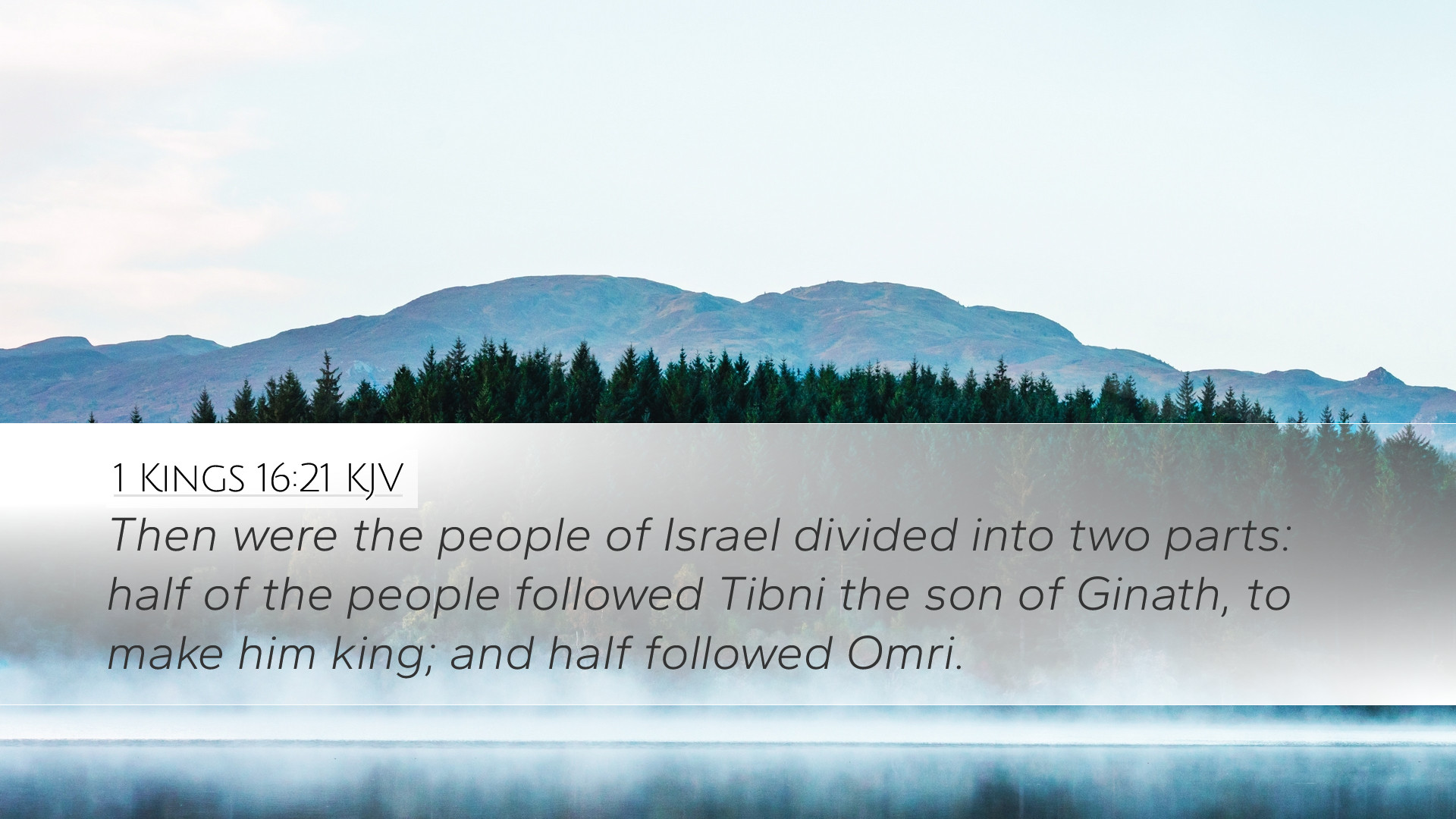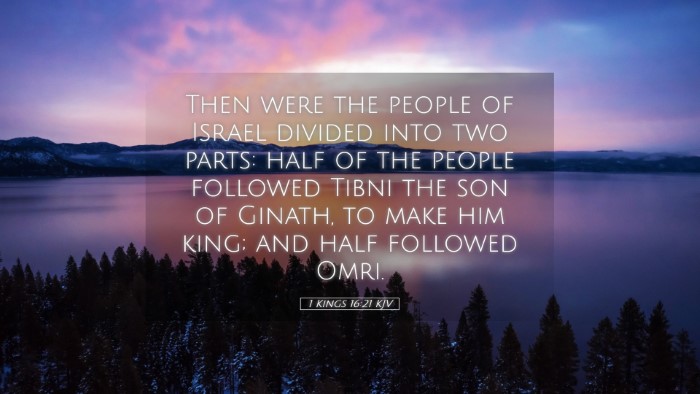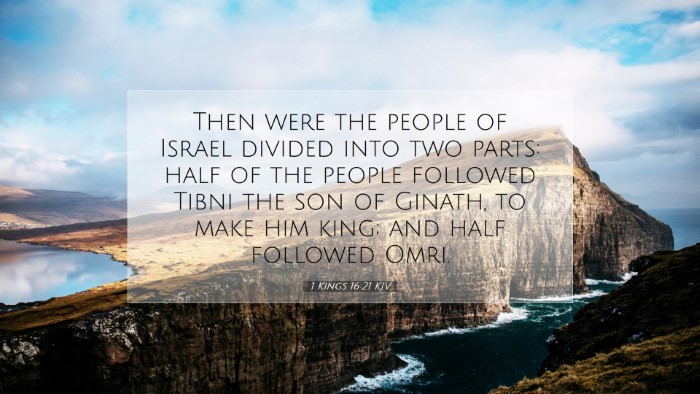Commentary on 1 Kings 16:21
Verse Reference: 1 Kings 16:21 - "Then were the people of Israel divided into two parts: half of the people followed Tibni the son of Ginath, to make him king; and half followed Omri."
Introduction
This verse marks a significant moment in the history of the Northern Kingdom of Israel as it indicates a time of division and civil strife that reflects the political and spiritual instability prevalent in Israel. It serves as a reminder of the consequences of idolatry and disobedience against God, which ultimately led to national fragmentation.
Contextual Analysis
1 Kings 16:21 occurs in a narrative filled with political maneuvering and the consequences of kingly decisions, particularly following the reign of King Baasha. The chapter chronicles the struggles for power amidst the backdrop of a nation grappling with idolatry, highlighting how national sin can provoke division and conflict.
Insights from Public Domain Commentaries
Matthew Henry's Commentary
Matthew Henry emphasizes the deepening political distress as the kingdom of Israel faces division. He notes that the people are torn between two candidates for kingship: Tibni and Omri. Henry suggests that this division showcases the instability that arises when a nation turns away from God. He writes:
"They were divided into two parts, a most unfortunate division, and this was the consequence of their sin. Those who follow the Lord ought not to suffer divisions, but being divided, they were led into further errors."
Albert Barnes' Notes
Albert Barnes underscores the significance of the leaders emerging from this strife. He states that this division illustrates the lack of unity and the people's unwillingness to follow a single leader. He remarks:
"The division of the people into two parties, following rival kings, reminds us that disunity is often a sign of a nation’s spiritual decline. Omri was ultimately established as king, but this does not indicate God’s endorsement; it is a reflection of the people's state."
Adam Clarke's Commentary
Adam Clarke provides a detailed examination of the backgrounds of Tibni and Omri. He notes that Tibni's claim to kingship was significantly supported by the faction that opposed Omri, yet Omri's military strength ultimately prevailed. Clarke remarks:
"The rise of Omri, despite the division, points to the idea that God may use even those with questionable legitimacy to fulfill His purposes. The division was less about righteousness and more about power struggles."
Theological Implications
The division mentioned in this verse carries profound theological implications. It brings to light the effects of spiritual decay and political turmoil that ensue when a nation drifts away from adhering to God’s commandments. Furthermore, the choice of leaders in Israel serves as a reminder of the responsibility that comes with leadership and the moral compass necessary for true guidance.
Leadership and Accountability
The exploration of leadership in this passage leads to insights relevant for contemporary theological discussions. It calls pastors, students, and theologians to reflect on the importance of godly leadership that fosters unity rather than division.
- Examining Civil Responsibility: Leaders should exemplify faithfulness to God and consideration for the spiritual well-being of their people.
- The Role of the Church: The church is challenged to act as an agent of healing in a divided society, promoting reconciliation and unity.
Lessons on Division
The account of the divided people of Israel serves as a cautionary tale for modern communities. It reminds us that division often arises from spiritual neglect and moral failings. The church must strive to uphold unity in Christ, combating the forces that seek to divide.
Conclusion
1 Kings 16:21 provides a narrative snapshot that conveys the tumultuous landscape of Israel during a critical moment in its history. The insights drawn from the public commentaries encourage a deeper understanding of the implications of division, the complexity of leadership, and the necessity for unity grounded in faith. Such reflections are essential not only for understanding biblical history but also for guiding contemporary Christian communities in their pursuit of godliness and harmony amid a fragmented world.


